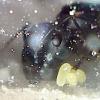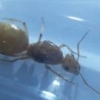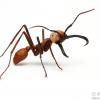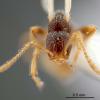Hello,
Judging from my experience when talking to you in chat and from reading keeping journals, I think that there are some major differences between German and American/Canadian antkeeping. Therefore I will try to explain the German way of ant keeping. I am sure that a fruitful exchange of ideas can lead to improvements on both sides.
Trade
German (and European Union) laws on trading ants are very permissive, that is why trade is thriving. There are dozens of ants from all over the world (except Australia) available. If you want to keep a native ant, you can buy most queens with their first workers for under 10€. When you are willing to buy an "exotic" species that does not require hibernation, you should calculate to pay 30-100€. However, there are some species that are very expensive (sometimes >500€), because they are either very rare or are quite large and have a unique appearance (e.g.: Camponotus gigas, C. storeatus, C. fulvopilosus or Paraponera clavata).
Eventhough most ant keepers are pleased with the easy accessibility of interesting ants from all over the world, there are some who are heavily criticizing ant trade and seek to forbid it.
Nests
When browsing american ant forums and watching videos (e.g. ants canada), I saw that you are generally using a lot of acryl nests. I don't know any German ant keeper, who uses acryl. In fact, most keeper will strongly urge potential buyers not to use acryl nests. This is mostly based on the idea, that it could be very difficult to control the moisture and keep it clean. For founding queens we mostly use test tubes with a small water reservoir. Later, most keepers either use cellular concrete or gypsum. Both materials are very easy to handle and both are very easy to water. Especially in cellular concrete nests there is seldom any mold, because of the air circulation. In Germany there is a big discussion about covering the nests. Some claim that darkness is absolutly necessary for ants, some claim that ants will easily adapt to a uncovered nest. Many keepers use red foil as reasonable compromise, because on the one hand you can look into the nest and on the other hand your ants got a dark nest.
Formicaria
There is a popular German ant shop where you can buy glass formicaria. Those are very common among German ant keepres, especially beginners tend to use this easy solution. But we also use plastic boxes, fish tanks and terraria. Some keepers got huge rainforest formicaria that require a special set up.
Food
Food is another often discussed topic. While all keepers agree that you can feed your ants with most kinds of insects, the first big question is whether to boil them out.The idea behind boiling them out is to reduce the risk of introducing mites into the formicarium. Many claim that the risk is relatively low and that dead insects are not the main source of mites. Besides feeding insects, some keepers also experiment with different food sources such as fish (fresh or frozen), sea food or cat food. Some people however claim that this is not a natural source of food and therefore you should avoid feeding it to the ants. A similar issue is often put up for discussion: feeding honey or sugar water. While sugar water is pretty cheap, easy to acess and not as sticky as honey, some fear that sugar water will lack vital ingredients and should not be used. I myself am using invert sugar for a while and would recommend it to everyone. It is easy to use, crystal clear and does not mold. More importantly: my ants seem to love it.
Community
The last point I want to talk about is the ant community. At first, I wanted to avoid the topic, because there are often problems arising within the community, when someone voices critism. However, I think (and honestly hope) that those problems are quite unique among ant keepers, so I don't want to leave it out.
The German (and Swiss and Austrian) ant community is pretty large and divided into several forums. This is the final result of the mentioned discussions that often became toxic very quickly. One of the major participants of those discussions even claims that he is bullied and hunted by a "mob of people" that try to silence him.
A very small part of the ant community had a great influence on ant keeping. They condemmed keeping of exotic ants and disencouraged everyone to keep them. Instead they urged everyone to stick to native ants (all German ants require a long hibernation). Several people felt that they and their opinions were not welcome and new forums were founded. I was member of three major forums (now it's "only" two) and in my opinion they all got their very own style. One is very suitable for beginners. Lots of journals about affordable ants, lots of help for beginners. Another forum is focusing on exotic ants, there you can find exquisite journals about very interesting ants. The third forum mainly focuses on scientific articles about ants.
I hope you liked my thoughts and explanations about German ant keeping. I am looking forward for your replies!
Edited by Colophonius, January 11 2015 - 10:57 AM.























